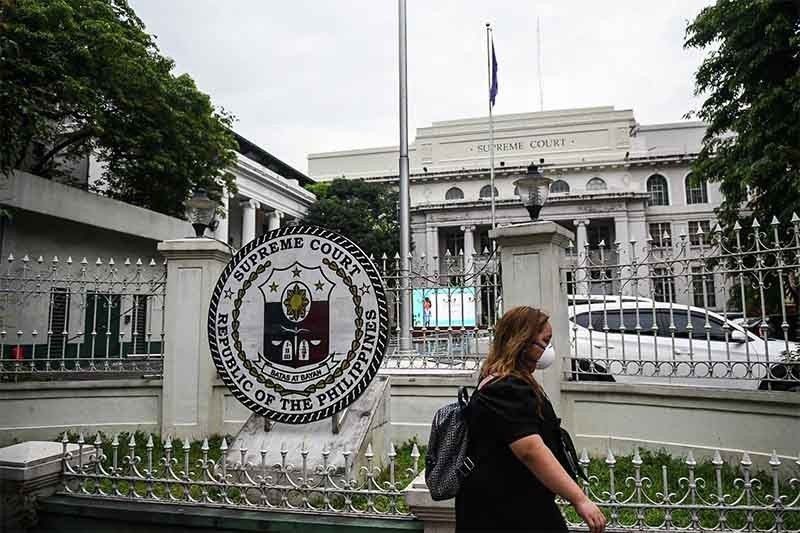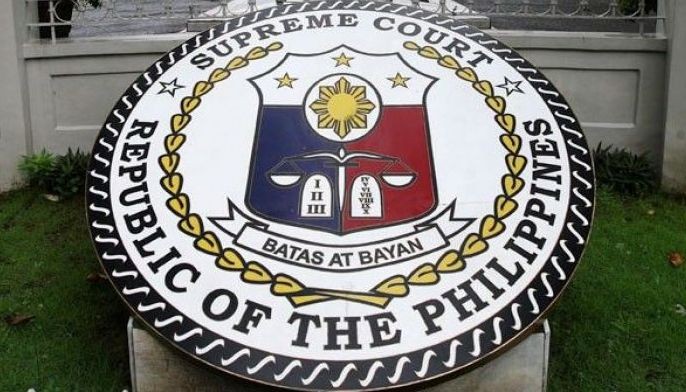In acquittal ruling, SC scolds law enforcers and prosecutors for fumbling drug law rules

MANILA, Philippines — In acquitting two accused in a P1-billion shabu case, the Supreme Court reprimanded law enforcers and the prosecution for failing to handle evidence and trial against five Chinese nationals and one Filipino who had been tagged as members an alleged drug syndicate.
The SC en banc, in a decision penned February 21 but made public only recently, acquitted Filipino Robert Uy and Willie Gan — a Chinese national — on drug charges over prosecutors' failure to prove their guilt beyond reasonable doubt.
This was after the SC found that law enforcers and the prosecution disregarded the strict requirements of Section 21 of the Comprehensive Dangerous Drugs Act, which holds that three insulating witnesses are required in the inventory of drug cases. The high court has also laid down guidelines on the custody of drugs seized.
The SC said that acquitting Uy and Gan is “truly regrettable” as it stressed that law enforcers and the prosecution “must exercise more prudence and care in their compliance with the requirements of Section 21 of RA No. 9165.”
“The instant case reveals the law enforcement agents' complete ignorance of the requirements of Section 21 of R.A. No. 9165,” it said, adding that: “The utter disregard for the law demonstrated by these actors is reprehensible,” the court also said, while referring to police officers and the prosecution.
Chief Justice Alexander Gesmundo penned the ruling, with several other justices writing their respective concurring opinions.
The trial court had already dismissed the charges against four other Chinese nationals arrested in the same case due to insufficiency of evidence. They are Ong Chi Seng alias Jackie Ong, Co Ching Ki alias Chai Ong, Tan Ty Siao and Go Siak Ping.
The case at hand
The case stemmed from the arrest of the four Chinese nationals in Valenzuela a Nov. 10, 2003. They were accused of conspiring to deliver 9,384.7 grams of shabu, with a street value pegged at P1 billion at that time, based on media reports then.
When they were warned of deportation, Ki and Ong, offered ten kilos of shabu in exchange for freedom. A police officer played along and he was later told that the drugs were ready for pickup.
The drugs came from a warehouse in Valenzuela that was raided the following day. Uy was the driver of the car with the shabu bribe.
The RTC acquitted the four Chinese but convicted Uy and Gan. Uy was sentenced to life imprisonment for drug trafficking, and up to 14 years and eight months for illegal possession. Gan was sentenced up to 14 years and eight months in prison.
Only Uy appealed the conviction, which eventually reached the high court.
Section 21
Acting on Uy’s appeal, the SC said: “After a review of the records, accused-appellant must be acquitted of both charges on the basis of reasonable doubt.”
The acquittal was also extended to Gan.
The SC pointed out that Section 21 of RA 9165 requires three insulating witnesses during physical inventory and photograph of seized items: A representative from the media and from the justice department, and any elected public official.
But in the Nov. 11, 2003 incident, no DOJ representative was listed among witnesses. The prosecution meanwhile failed to present photographs of the seized items. Photographs taken also “hardly constitutes the required inventory” under Section 21, the SC said.
“Based on the foregoing, it is clear that there was failure to strictly comply with the requisites of Sec. 21 of RA 9165 in both operations,” the ruling read.
While the prosecution raised a supposed urgency in the situation following the bribe offer, the SC pointed out there was time to secure witnesses while the drugs were being prepared.
The high court went on to “address a potential concern involving the effect of failure to comply with the strict requirements of Sec. 21.” It reiterated the guidelines set down in People v. Romy Lim where it said the investigating prosecutor can refer the case to preliminary investigation in instances of non-observance of Sec. 21 requirements.
The court also said it “harbors serious concerns over the identity, integrity and evidentiary value of seized items,” as it pointed out that “there are material gaps in the chain of custody of the seized items.”
While Gan did not appeal his conviction, the SC pointed out that the defects in the chain of custody from the operation also apply to him.
The SC also called out the “more reprehensible” error by the lower court when it sentenced Gan to just 12 years and one day up to 14 years and eight months, and fined him P300,000 when he was convicted. It pointed out that the law was clear that penalty should be life imprisonment and fine ranging from P500,000 to ten million in cases where the illegal drugs is 50 grams or more.
That the prosecution did not appeal the incorrect penalty on Gan “astounds the court.”
It added that it found it “bewildering” that the RTC acquitted Ki and Ong as their bribe offer to the police officer was not proven as fact but Uy was convicted in the events that arose from the said bribe.
“Truly, the acquittal in the instant case is ordained by the multiple errors, whether through negligence or misfeasance, committed by the prosecution, the defense, and the trial court,” it added.
“The Court beseeches all actors in the administration of criminal justice in our jurisdiction to effectively carry out their respective duties and responsibilities, keeping in mind that any failure on their part will likely result in acquittal. Such is the burden imposed on these actors, ordained by the evidentiary value required in criminal cases: proof beyond reasonable doubt,” the SC said.
- Latest
- Trending
































